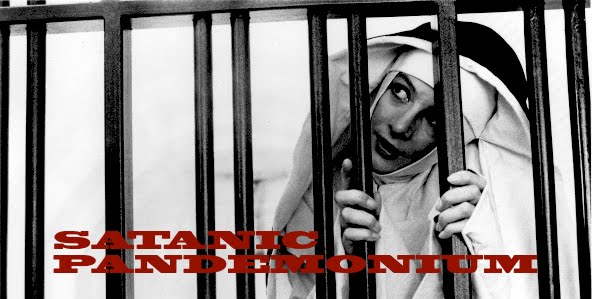
John Boorman, 1981
Starring: Nigel Terry, Helen Mirren, Nicholas Clay, Cherie Lunghi, Liam Neeson, Patrick Stewart
Though there have been Arthurian themed films before and after Excalibur, it is the most ambitious, the most beautiful, and also the messiest. Instead of trying to compress a sprawling myth into a digestible story, this film tries to expand the devices of story and film to make myth a cinematic experience. While this is not entirely successful, it is an interesting, worthwhile experiment and is one of the most provocative fantasy films of the early ‘80s.
Merlin obtains the sword Excalibur from the Lady of the Lake and helps Uther Pendragon seduce Igrayne, the wife of Pendragon’s rival, the Duke of Cornwall. Igrayne gives birth to Arthur, who is taken by Merlin as part of his bargain with Uther. Uther drives Excalibur into a stone, declaring that the only person who draws the sword out will be king. Several years later, the young Arthur accidentally pulls Excalibur out of the stone during a jousting tournament. Merlin announces that he is king, though Arthur must wins the loyalty of the knights, a difficult process. Later, Arthur meets Lancelot. They have a devastating battle, in which Arthur breaks the sword and kills Lancelot, but the Lady of the Lake restores both when Arthur promises never to abuse his power again. Lancelot joins Arthur, the Round Table is created and Camelot is built. Arthur marries Guinevere against Merlin’s advice.
Predictably, Lancelot falls in love with Guinevere and keeps his distance from Camelot to avoid his feelings for her. Morgana, Arthur’s half-sister, hates him for bringing about the death of her father (the Duke of Cornwall) when Arthur was a baby, and begins to learn magic from Merlin to hopefully get her revenge. She devises a trap to accuse Lancelot and Guinevere of infidelity, which ultimately becomes reality. Merlin takes action against Morgana, but she traps him and seduces Arthur in disguise, resulting in a son, Mordred. The birth of their son curses the land, so Arthur and the Round Table go on a quest for the Holy Grail, which is opposed at every turn by Morgana. In order for the kingdom to be restored, Merlin must free himself and face Morgana, while Arthur must confront his own son.
This lengthy, complicated film follows the story of King Arthur as told in Thomas Malory’s Le Morte d’Arthur, cramming as many elements as possible in the film. Excalibur is admirable because it tries to tell all of Arthur’s myth, the complete story of his complicated life, as well as the side characters that drive him to action. As with Dragonslayer (from the same year), Boorman tries to give the film a sense of realism, of dirtiness and of violence. There is plenty of the latter, though some of the cheap effects make these scenes silly rather than gruesome. There is also a fair amount of sex, and unlike other adaptations, it doesn’t shy away from the frequent sexual deception, incest and infidelity.
There are a number of strong actors who make the best of a weak script: Nigel Terry, a young and very sexy Helen Mirren, and Nicol Williamson as the dominating Merlin. Patrick Stewart also makes a small appearance. The film, set in Ireland, is also known for launching the careers of several Irish actors - Gabriel Byrne (Pendragon), Liam Neeson (Gawain) and Ciarán Hinds (King Lot).
The award-nominated cinematography from Alex Thomson is absolutely lovely and dreamy. Though the visuals are slightly crippled by a small budget, the film benefits from the lush, Irish scenery and symbol-laden set pieces and costumery (though many elements are anachronistic). There is a nice score from Trevor Jones with supplemental material from Richard Wagner (the Ring cycle) and Carl Orff (Carmina Burana, big surprise).
Again, as with Dragonslayer, Excalibur is interesting because it attempts to dissect and deconstruct myth and the power of fantasy tropes. While neither film succeeds in this endeavor, both are worthwhile examinations of cinematic fantasy. Excalibur also explores the complicated intersection between pagan mysticism and the birth of Christianity, which the film does particularly well during the late segments when Percival quests for the Grail.
Director John Boorman has had a fascinating career. After making Point Blank (1967) and Deliverance (1972), he churned out the ridiculous Zardoz (1974), the awful Exorcist II: The Heretic (1977) and then Excalibur. Excalibur suffers similar flaws as the previous two films. It attempts to be serious, but is occasionally laughable, with silly dialogue, some wooden acting, and low-budget, visual spectacle that borders on the ridiculous. The sheer number of characters and subplots prevents any one personality from being fully realized, to the detriment to the film. Perhaps it should have been a miniseries.
Excalibur still comes recommended, but be prepared to put aside your expectations (this is not a live action version of The Sword and the Stone) and be patient. Warner fortunately released the film on Blu-ray, which is the best way to see it. The only extras are a trailer and an interesting commentary track from Boorman.

No comments:
Post a Comment